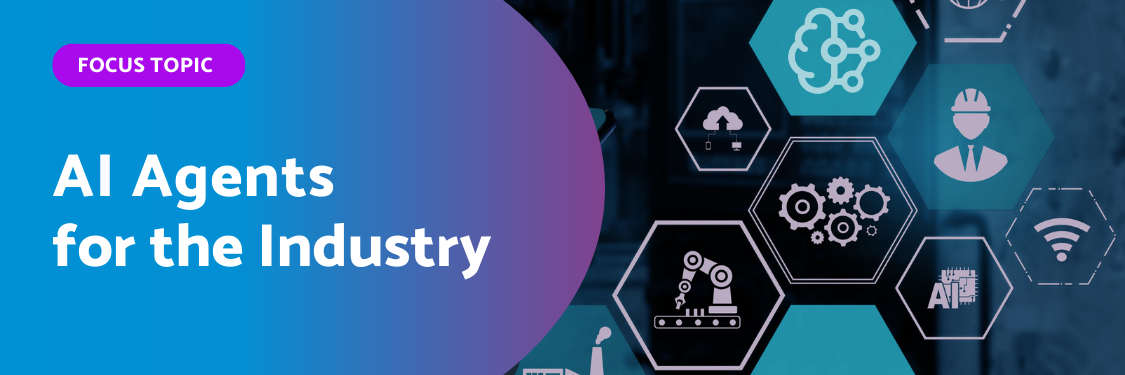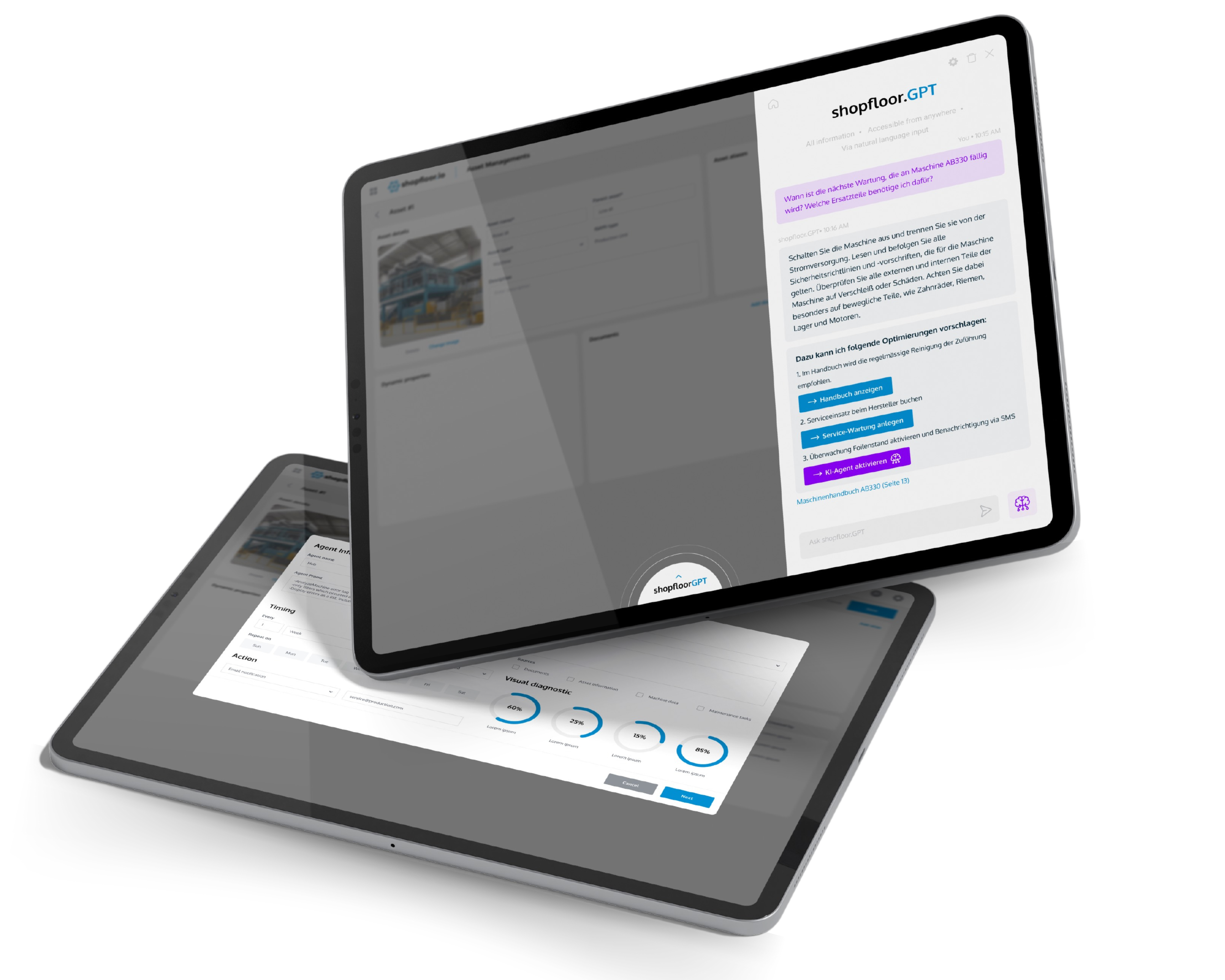
7 facts about AI agents for industry
Questions and answers are the foundation of human curiosity and our relentless pursuit of knowledge. This basic need to understand the world around us has taken on a new form in the digital age. The first chatbot, ELIZA, was developed in the mid-1960s and marked the beginning of an era in which machines began to answer our questions. But the real revolution in answering our questions came with the development of Natural Language Processing (NLP) and AI agents.
The shift from chatbots to AI agents:
While chatbots are great for simple, conversational tasks, they quickly reach their limits when it comes to unusual or complex queries. The introduction of AI agents, such as those offered by shopfloor.GPT, has fundamentally changed the landscape of digital interaction. These agents go far beyond the capabilities of traditional chatbots by not only communicating but also extracting in-depth knowledge from a variety of documents.
The power of semantic search:
A core feature of shopfloor.GPT and similar systems is semantic question answering (QA). In contrast to the lexical search, which is based on the mere comparison of search terms, the semantic search enables a deeper level of understanding. It extracts answers from an extensive document pool by capturing the meaning behind the words. This approach makes it possible to provide precise and contextualised answers to specific questions.
The power of shopfloor.GPT AI agents:
The real power of shopfloor.GPT lies in its AI agents. These agents can perform complex tasks such as document search, text generation or content summarisation. By accessing specific data sources directly, they can not only answer simple questions, but also solve more complex problems. They act as intelligent assistants that are able to generate valuable insights and answers from the flood of data.
Areas of application and benefits:
Industry 4.0 is synonymous with the fourth industrial revolution, which is characterised by the introduction of digital technologies and artificial intelligence (AI). In this context, industrial AI agents play a key role. They are not only designed to automate repetitive tasks, but also offer profound insights and optimisation possibilities for production processes.
The possible applications of shopfloor.GPT AI agents are diverse and range from the optimisation of industrial machines to the prediction of maintenance requirements and the adaptation of production processes in real time. They not only provide direct answers to questions, but also identify patterns and optimisation potential that could remain hidden to the human observer. In industrial environments, where every second of downtime counts, these AI agents are a real game changer.

They act like a highly intelligent, constantly learning nervous system within the production infrastructure. The speed at which this technology works is breathtaking. Information that would take a person hours or even days to research is available within seconds. This revolutionises not only decision-making, but also the way companies operate by making them more agile, informed and effective.



